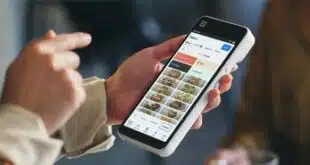Despite tests and innumerable press releases, the number of payment transactions from cell phones barely registers. But payments from mobile devices are about to take off thanks to a convergence of factors on the demand and supply side, according to a new report from Yankee Group Research Inc. The “Dialing for Dollars: Yankee Group's 2009 NFC Forecast” report comes as Visa Inc. and Monitise plc announced Tuesday that Visa had invested $13 million in the British mobile-technology provider, which will aid Visa's efforts to develop mobile payments worldwide. Boston-based Yankee Group's forecast for payments from mobile devices that use Near Field Communications, a short-range radio technology to transfer data between a card and a payment terminal, is based on consumer research, interviews with telecommunications company executives, and banking data. Yankee Group estimates global payment transactions originating from NFC-enabled mobile devices will be a mere 110,000 this year, but then jump to 7.3 million next year; 130.2 million in 2011; 970.9 million in 2012, and 3.6 billion in 2013. Behind the predicted boom is budding demand, Yankee Group senior analyst Jon Paisner tells Digital Transactions News. Through interviews with 486 consumers in 2009's first three months, the firm estimates a substantial share of adults are now interested in NFC payments, including 38% for the 25- to 34-year-old age group, 29% for 35 to 44 group, and 28% for the 45 to 54 group. Supply-side factors also are converging, though telecommunications networks and the payments industry still haven't reached an overarching accord about splitting revenues. The carriers control the so-called SIM card, the brain of a mobile phone. But Paisner notes that the mobile-phone trade group The GSM Association concluded earlier this year that carriers don't need to be compensated with a revenue stream originating from payment transactions because the NFC chip handles the key functions. “The carrier's involved in very little,” he says. Carriers do have a justifiable claim for compensation for over-the-air provisioning and customer-service calls they take when consumers have trouble with NFC payments, Paisner says. “They need to be compensated, it's just that they don't need to get a revenue share,” he says. Possible models include a one-time fee to the carrier when a phone is activated, or, less likely, an annual fee. “This is the part of the business model that hasn't been worked out yet,” he says. But Paisner notes that suppliers will be able to charge higher upfront prices for their products, enhancing the business case for payments. Mobile-device manufacturers and carriers indeed sense a budding opportunity and are about to distribute millions of NFC-equipped phones, according to Paisner. Finland-based cell-phone giant Nokia recently introduced the first such device (Digital Transactions News, April 29). Yankee Group predicts 2009 will end with about 34,600 NFC phones in use, nearly all of them in Europe. The year 2013, however, will be a “tipping point” in which the number of NFC-enabled handsets will hit 80.8 million, including 13.4 million in North America. “By then you're going to get out of this trial stage,” Paisner says. About 21% of North American holders of NFC-enabled phones will use the payment capability by 2013, Paisner predicts. Major acceptance markets will be high-frequency, low-ticket markets such as mass transit; low-value, low-volume sectors such as vending machines; and low-frequency but higher-value retail segments such as consumer electronics, according to Yankee Group. These sectors already are the focus of development efforts by payment networks, merchant acquirers, and others for contactless cards. Yankee Group predicts worldwide contactless card transactions will come in at 3.5 billion this year, 7.9 billion in 2010, 15 billion in 2011, 23.6 billion in 2012, and 31.8 billion in 2013. Meanwhile, Monitise said in a statement that it would be “a strategic development partner for Visa's comprehensive suite of mobile services, including payments, mobile money transfer, mobile transaction alerts, and mobile marketing offers to support Visa's mobile strategy to extend the reach of its global network to the more than 4 billion mobile devices around the world.” Monitise is selling new shares as part of the pact that, if approved by its shareholders, would give Visa a 14.4% share of the company, a representative on its board of advisors, and the option to nominate someone for the company's board of directors. The Monitise investment is just the latest of Visa's recent moves in the mobile space that include an agreement with NeuStar Inc. for access to more than 4,000 wireless carriers worldwide (Digital Transactions News, June 24). In another development Tuesday, Citigroup Inc. launched “Citi Tap and Pay” in Bengaluru (Bangalore), India, in what the bank claims is the largest test ever of contactless mobile payments. Partners include MasterCard Inc. with its PayPass contactless system, mobile network operator Vodaphone, contactless terminal provider ViVOTech Inc., and Nokia, which is supplying its Nokia 6212 NFC-enabled handsets.
Check Also
Paysafe Teams With Fiserv to Offer Merchants Digital Wallets And Other New Features
Paysafe Ltd. and Fiserv Inc. are teaming up to offer merchants using Fiserv’s Clover point-of-sale …





